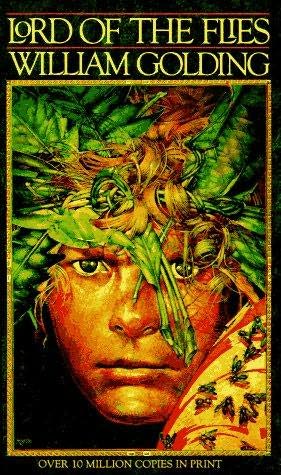Finding Books
 From time to time I plead with readers to exercise discernment in choosing books and with viewers, in deciding what movies or TV shows to watch (see for example “Reading And Standards For It,” “How Much ‘What If’?” and “The Good and Bad of the Reading Experience”). But it strikes me that most of us don’t choose our stories based on what’s good for us. That smacks too much like taking our medicine or eating our vegetables.
From time to time I plead with readers to exercise discernment in choosing books and with viewers, in deciding what movies or TV shows to watch (see for example “Reading And Standards For It,” “How Much ‘What If’?” and “The Good and Bad of the Reading Experience”). But it strikes me that most of us don’t choose our stories based on what’s good for us. That smacks too much like taking our medicine or eating our vegetables.
Stories, it seems, are more like rich dessert or forbidden candy. They give us what we want, not what we need.
Which might be a scary thought. What does our book selection reveal about us?
Do we gravitate to epic fantasy because we want stories in which good, against all odds, triumphs over evil? Do we choose horror because we want to see some measure of hope in the fight against the monsters terrifying us? Do we read superhero stories because we desire a Knight who will set the world to rights?
Those are pretty noble motives. We could, however, just as easily ask, do we read epic fantasy to play out our revenge desires against the status quo, do we read horror because we have a fascination with inflicting emotional pain, do we read superhero stories because we covet the power to destroy whoever stands in our way?
Motives are at the heart of choosing what to read, I think.
From my online research, I came to believe what the studies about the brain and fiction revealed: “fiction is . . . a model for life which readers create in collaboration with writers.” The onus, then, seems to fall to writers to write truthfully. And yet the “collaboration” aspect doesn’t let readers off the hook. We have a responsibility to do something with the stories we read or view–rejecting or affirming according to the ways those line up with Biblical truth.
But what about the choosing of stories in the first place? How are we to determine what stories we’ll ingest?
Do we read books because they’re controversial, as I did The Shack? I thought about this in regard to Allegiant by Veronica Roth, which seems to be generating some controversy. Or how about Vox Day’s Throne of Bones and Kerry Nietz’s Amish Vampires in Space?
Perhaps we read books because they are popular. I first picked up Harry Potter because the movies had made them so popular I didn’t think I could avoid them (and the controversy over the books played a part in why I went to see the first movie). How many people started the Twilight series by Stephenie Meyers or the Hunger Games books by Suzanne Collins because of their popularity?
Some readers might choose books, and viewers, movies or TV shows, based on genre. After all, we talk about romance readers as a collective, or sci fi fans as a unit. Are some story fans locking themselves into a particular type of story? I think that might be the case. Whatever is in the chosen category is good, and whatever outside the category is a waste of time.
Readers might also choose books because of an author’s worldview. Recently Spec Faith guest L. B. Graham, in his article, “Some Reflections on Reading,” questioned that approach. Should we read books because a Christian wrote them, or steer clear of books written by avowed atheists?
There are lines that we must draw, and I have no wish to deny that. What I do deny is that this process is as simple as identifying the worldview of a literary work as “Christian” or “Not Christian” and then throwing out everything in the second group. I think the discernment which God calls us to, penetrates deeper than this.
Another group of readers choose books because of the author himself. If he has written a book these readers enjoyed, then they will look for other books by him and devour all they can find. Take Dan Brown, for instance. Until The Da Vinci Code became popular, none of his other novels had sold well, but after that novel hit big, suddenly his previous books such as Angels and Demons and Deception Point, upon re-release, were also best-sellers.
Still other readers only read what a trusted source recommends. If a good friend (or an online source that has proved reliable) has read the book and gives an endorsement, then the book has been vetted, so to speak, and the reader is willing to put time into it.
I suspect most readers use some combination of the above in choosing their books. Is there one preferred way?
 Some of the harshest books I’ve read were not precisely choices–some teacher assigned them: Germinal by Émile Zola, The Lord of the Flies by William Golding, 1984 by George Orwell, Brave New World by Aldus Huxley, Grapes of Wrath by John Steinbeck.
Some of the harshest books I’ve read were not precisely choices–some teacher assigned them: Germinal by Émile Zola, The Lord of the Flies by William Golding, 1984 by George Orwell, Brave New World by Aldus Huxley, Grapes of Wrath by John Steinbeck.
I’m not sorry I read a single one of those, though they were hard, even depressing in some instances. Nevertheless, they taught me a lot about life apart from God. I am more knowledgeable and even wiser because I read those books.
On the other hand, a movie showing gratuitous sexual behavior which I saw when I was a freshman in college left me convinced I needed to choose movies more wisely. I saw no “redeeming quality” in that movie.
Today, with movie trailers and previews and reviews, and similar pre-release information about books, a lot is known about stories before the reader or viewer ever has to decide about becoming a consumer. It seems we have less chance of reading or viewing something that surprises us. We pretty much know going in what kind of story we’re getting. Which moves the choice of stories forward, I think.
What do you think? How important is it for Christians to make wise choices regarding the stories we ingest? What ways do you use to find books? What part, if any, does discernment play in your reading?































Good article. Before I was a believer I read whatever I wanted to (my grandmother owned a bookstore). Although things were not the same back in the day, not everything was safe. I quickly learned that good books had to be sought out, they just didn’t happen by chance. In the US there are over 500, 000 books published every year. That leaves about 499, 950 books I will not be reading this year. I think that the odds are in my favor to read 50 really good books.
Now as a follower of Christ I find that I really enjoy reading fiction that helps me in my walk is what I really enjoy reading. Of course not all fiction written by Christians is good or theologically sound so even there discernment must be practiced. I occasionally go to the library and pick up audio books of the classics to listen to on my long commutes but mainly my reading lines up with God’s Word. I had a decade and a half of secular philosophy in my formidable years and I’m done with it.
BTW. I am reading my first Amish book. Yes, it’s Kerry Nietz’s Amish Vampires in Space. And no I did not pick it because it’s controversial. And yes, it’s very good. Pick up a copy if you want to be cool.
I once read an atheist nonficton book, an anthology of essays defending atheism and smearing God. I didn’t have enough motivation to read the whole book, but I read enough of the essays to be seriously disturbed.
I don’t regret it. I did it because there was a very vocal atheist in my class, who I had run into before and argued with. I realized that if we were going to understand each other, someone needed to take the initiative to descend into the worldview that we perceived to be warped and ignorant. As a Christian, I figured that should be me. That’s what Christ did, and in my pathetic little attempt to imitate Christ, I asked the atheist to find me a book on atheism of community college’s library.
Agreed, but I don’t think the affect that you think the book will have on you is a good reason for deciding not to read a particular book. At least not always. We can’t predict how a book will affect us.
I’m pretty sure that the true purpose of discernment is for the benefit of others, not for our own safety. If someone saw me reading that atheist book and thought, Paul must be an atheist now. Maybe I should be an atheist too, then my public act of reading the book would have been bad. That example would never have happened, of course, because no one is that shallow, but discernment out of concern for others might be more relevant for entertainment.